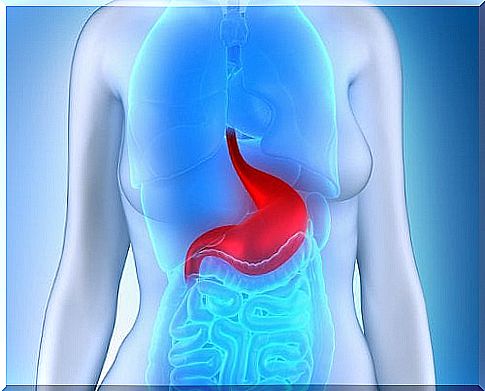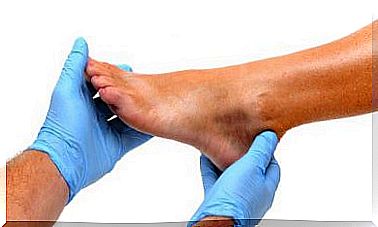Take Care Of Your Stomach And Prevent Disease

Your stomach is located in the center of your body, where many important bodily functions take place. The stomach processes the food you eat and can even determine your mood, your energy level and your level of happiness.
Want to learn more about how to take care of your stomach and prevent stomach disease? Then keep reading.
Not only for aesthetic reasons, but also for health, it is very good to have a flat stomach. In addition, you will generally feel better if you keep your stomach in good shape.
However, if your stomach is not functioning properly, you will notice this in your state of mind. You will be tired and have dull skin and it is often the case that you will gain weight. This is all because your body has trouble clearing toxins and waste products that have accumulated in the bloodstream.
How do you know if your stomach is not functioning properly?

As we mentioned above, your skin can be a warning sign that something is wrong with your stomach. Your skin may be dull, oily, or you may have pimples and blemishes.
Other signs that you need to change the way you handle your stomach include:
- Bad breath
- greasy mouth
- white tongue
- Stomach ache
- bloated belly
- Excessive intestinal gas
- Poor appetite
- Nausea
- a lot of farmers
- Constipation
- Diarrhea
- Indigestion
All of these signs mentioned above can indicate that there is a problem somewhere in your digestive system. If you are experiencing any of these symptoms, it is important that you begin appropriate treatment to help your stomach recover.
What Factors Affect the Health of Your Digestive System?

Once you have determined that something is wrong with your stomach based on the above symptoms, it is important that you start watching what you eat.
Sometimes you may not even realize that the food you are eating is harmful to your health and you just keep eating these things happily. In most cases, the factors below are the biggest causes of stomach problems such as:
- Stomach ache
- Swelling
- bloating
- intestinal gas
- Constipation
Eating dairy products
The biggest culprits are full-fat or unpasteurized milk and strong cheeses. However, all types of dairy products are heavy on the stomach.
Some people believe this is due to the artificial ingredients added to these products, while others believe it is because as mammals we are actually lactose intolerant once we stop being breastfed.
Whatever the cause, we can’t deny that many people don’t feel very well after eating dairy. This is because our bodies do not contain the enzyme needed to process dairy, so dairy sticks to the walls of the intestines.
This causes the stomach to become inflamed and toxins and fat to build up and we experience intestinal gas and indigestion.
Bad eating habits

What do we mean by this? By bad eating habits we mean the habit of eating all the time, if you are unable to eat for more than two hours, you snack all the time or if you always have chewing gum on hand.
This means that your stomach never even gets a chance to settle down, because it is put to work all the time. This causes:
- Discomfort
- Indigestion
- Poor absorption of nutrients
- Pains and more
Combining foods that don’t go well together
This is not to say that you cannot eat certain foods at the same time, but there are certain combinations that you have to watch out for.
Nutritionists say it varies from person to person, but in general it is not recommended to combine carbohydrates and proteins in one meal if you suffer from stomach problems. To digest carbohydrates, your stomach needs an alkaline pH, while digesting proteins requires acids.
This means that your stomach has to work super hard to process a meal in which you combine the two ingredients. It is therefore better to eat carbohydrates and proteins separately. For example, eat one ingredient at lunch and the other at dinner.
Not drinking enough water

You have undoubtedly read that you should drink at least two liters of water a day. This amount is by no means arbitrary. If you do not drink enough water, digestion will become more difficult and you will have difficulty going to the toilet properly (constipation).
Regardless of this, it is still wise not to drink more than a glass of water during a meal to avoid diluting the pH level of the stomach and thereby complicating digestion.
over cooked food
Of course you can’t eat some foods raw, but sometimes people exaggerate and cook their food for far too long. As a result, products lose all the nutrients they contain, so eating these products can be harmful to your stomach.
Try to eat raw products (vegetables and fruits) more often, whether it is summer or winter. Juices and smoothies can help satisfy your hunger while providing the nutrients you need while avoiding the dangers of overcooking.
Eating too much red meat

Unfortunately, red meat does not contain the fiber that is essential for healthy bowel movements. Therefore, many people who eat too much red meat suffer from problems such as:
- Colitis
- Hemorrhoids
- Constipation
- diverticulosis
Remember that your stomach has an elongated shape and is connected to a very long intestinal tract, which means that food stays in the body for a long time before it is finally ejected. This causes toxins to build up in the bloodstream.
If you really like eating red meat, do so with a fresh salad that is full of vegetables and try not to eat red meat more than twice a week.
Tips to take care of your stomach

- Drink medicinal teas from herbs such as chamomile, anise and mint.
- Make sure you get more exercise to stimulate the gut.
- Eat more fiber from whole grains.
- Avoid stimulants such as alcohol, coffee and vinegar.
- Chew slowly and enjoy every bite. Do not eat in a hurry and cut your food into small pieces.
- Try not to eat when you are angry, nervous or anxious.









